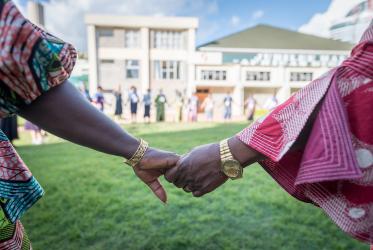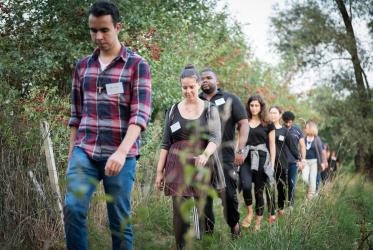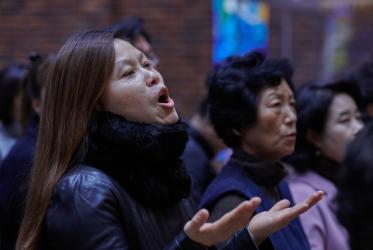Mass media can play a positive role in creating attitudes of tolerance and greater understanding in situations where racism might inflame an already difficult situations, says the head of a Christian global communication rights organization.
“Negative coverage helps create an atmosphere where anything goes, where bigotry seems officially sanctioned and legitimized,” says Philip Lee, general secretary of the World Association for Christian Communication (WACC). “The way people see their neighbours and newcomers from other parts of the world presented in the mass media or in social media snippets is key to how they respond to issues of social justice.”
Lee, who is a long-time advocate for informed and inclusive media coverage about issues concerning human rights and peace issues, made his comments following a gathering in Geneva today to mark WACC’s 50th anniversary.
The event was hosted by the communication department of the World Council of Churches (WCC) during a meeting of the organization’s central committee and coincided with WCC’s 70th anniversary.
Concerns about coverage of issues such as those related to mass movements of refugees and migrants are at the heart of the mandate of the communication rights organization founded in Oslo in 1968 from the merger of two Christian communication organizations. The founding principles were that those responsible for the mass media should be the voice of democratic accountability, balanced news, and cultural diversity rather than serving commercial interests or being controlled by governments.
At the WCC assembly held in Uppsala that same year, the role of mass media was an issue, says Lee. “The media were massively present at the assembly. The question was how they can play a positive role in society.”
Fifteen years later at the WCC assembly in Vancouver in 1983, WACC collaborated with the WCC in the creation of a statement called “Communicating Credibly.”
“Today the question of what is credible communication rises again,” Lee notes. “In this connection WACC has been asked to look at social media and the ethical issue of the intentions of authors of social media snippets that play on racism and intolerance already present in society.”
Rising intolerance for refugees and migrants in Europe led WACC to initiate a research and advocacy project with the Churches’ Commission for Migrants in Europe in 2017. The report titled Refugees Reporting advocates for the communication rights of refugees seeking safe passage through Europe.
WCC’s director of communication, Marianne Ejdersten, says the need for this type of communication advocacy is urgent. “WACC was needed in the post-Uppsala era and is needed even more so today.”
In responding to Ejdersten’s comments, Lee noted: “There is a grave crisis in Europe and elsewhere. We need to raise awareness about both the negative and positive roles of mass media in society. WACC believes that church and secular media need to be critical while at the same time ensuring balanced comment on social justice issues.”







